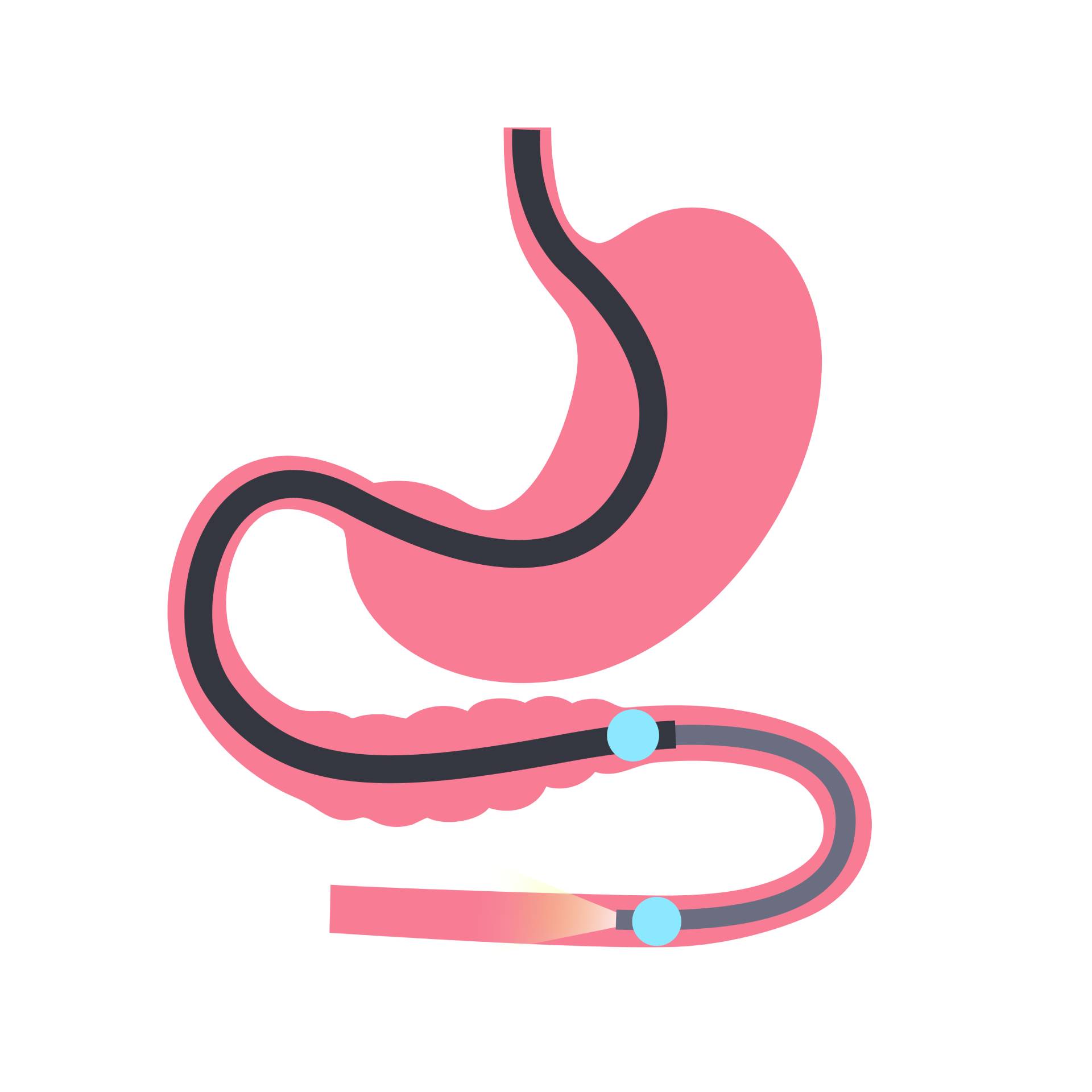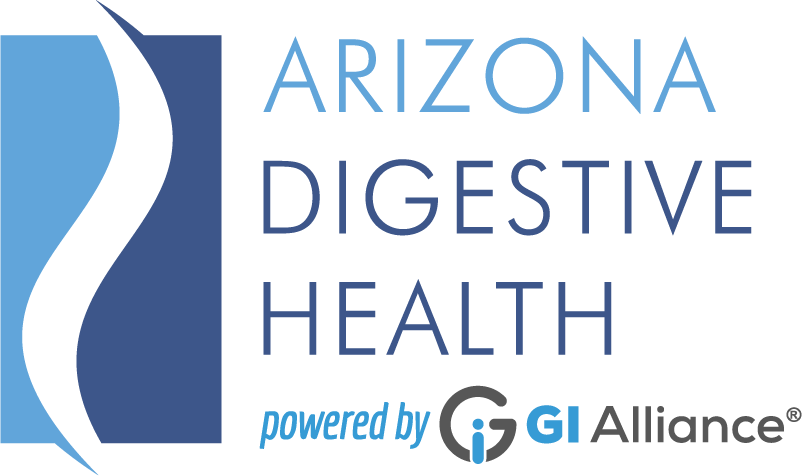What is an enteroscopy?
Enteroscopy is a type of endoscopic procedure in which a lengthy, thin, bendable scope, or tube, is inserted through the mouth and progressed down into the second portion of the small intestine (called the duodenum). The scope has a light and a camera on the end of it that allow the physician to see the interior of the esophagus, stomach, and small bowel. An enteroscopy procedure may be suggested to determine the cause of gastrointestinal problems such as stomach pain, bleeding, or concerning x-ray results. If it’s been suggested you get an enteroscopy, you can contact one of our talented GI specialists at Arizona Digestive Health to learn more. Our providers commonly conduct enteroscopy procedures for Phoenix, AZ individuals and can help you enhance your gastrointestinal health.

Why is an enteroscopy performed?
Enteroscopy procedures are often utilized to detect disorders or abnormalities in the small bowel. Some of the conditions include:
- Abnormal growths or tumors in the small bowel
- Bleeding
- Unexplained diarrhea
- Unusual x-ray results
Depending on what your GI physician is looking for, there may be alternative options to an enteroscopy. In many patients, enteroscopy is the best method to diagnose and manage concerns in the upper GI tract, especially if they concern the second portion of the small intestine. Otherwise, there is an x-ray procedure known as an upper GI/small bowel follow-through that can also be used to diagnose issues in your upper digestive tract. This is, however, only a diagnostic exam. Treatment of these findings will require an enteroscopy and/or surgery.
What can I expect the day before my enteroscopy procedure?
Your Arizona Digestive Health provider will give you instructions regarding the preparations you need to make prior to your enteroscopy procedure. A large number of individuals will likely be able to eat as normal the day leading up to their procedure. Patients will have to avoid consuming anything by mouth after 12:00 a.m. the day of their enteroscopy (apart from medications). It is imperative to adhere to the instructions provided by our team. You will also receive more guidelines regarding your medications. In many cases, your medications can continue as usual. However, in select individuals, especially in patients who take anti-coagulants and who have diabetes, special directions will be administered.
What happens during my enteroscopy?
The staff at your local Arizona Digestive Health endoscopy center will ask you to arrive 1 – 1.5 hours prior to your enteroscopy procedure. This is to allow time to fill out paperwork and get prepped for the exam. You will be asked to change into a medical gown. An intravenous (IV) catheter will be inserted in your arm so sedation can be administered. You will be connected to equipment that will allow the providers to keep track of your blood pressure, heart rate, pulse, breathing, oxygen levels, and more while you’re in our care.
Once in your exam room, we’ll have you lie down on your left side on our procedure bed. The sedation will then begin. For your safety, it will be administered in small amounts at a time to ensure you only receive as much as you need and don’t have an adverse reaction. Once the correct amount of medication is reached, the endoscope will be gradually inserted into the mouth. We will carefully advance the scope through the esophagus, stomach, and small intestine. A small amount of air is injected through the scope into the GI tract to help our team see. Any remaining fluid in the upper GI tract is suctioned out through the scope. Depending on the results of your exam, several things can be performed at the time of the procedure, such as biopsies, removal of polyps, and management of bleeding. At the end of the procedure, the remaining air and fluid are drawn out through the scope. Depending on our findings, the procedure takes between 15 – 45 minutes.
After the exam, you will be escorted to recovery to be monitored while the sedation wears off. The amount of IV sedation used during your exam and your particular response to the sedation will determine how fast you come to, though most patients are awake enough to be discharged after about 45 – 60 minutes. You cannot drive for the rest of the day, so you will need to have someone take you home. You will not be able to work, sign official documents, or perform taxing activities for the rest of the day. Typically, patients are able to eat and drink normally after being released from the endoscopy center, but specific instructions regarding activity and exercise, eating, and medications will be reviewed before discharge.
After the enteroscopy exam, your Arizona Digestive Health team will discuss the findings of your procedure with you. Many patients will struggle to remember the results of the exam because of the effects of the sedation. We recommend, if possible, to have a family member join you who can lend a second pair of ears. We will also send you home with a typed report. You will be provided with any biopsy results after about seven days.
Is an enteroscopy risky?
Overall, enteroscopy is a safe procedure, with complications coming up in only about 1% of patients. The majority of complications are not life-threatening, but if a problem does arise, it could necessitate a hospital stay and a surgical procedure. Prior to the exam, a consent form will be reviewed with you by the nursing staff. Should any questions or concerns arise, these can be reviewed with your GI specialist prior to beginning the enteroscopy.
It’s possible you may have an adverse medical reaction to the sedative used for your enteroscopy. This could include (but is not limited to) difficulty breathing, changes in heart rhythm and blood pressure, allergic reactions, and irritation of the vein that received the medication. Bleeding can occur with removal of polyps, biopsies, and with dilating strictures. Any bleeding that may occur is unlikely to be so severe that hospitalization is needed. A hole or laceration of the esophagus, stomach, or small intestine could also occur. This may be recognized during the exam, or it may not be evident until hours later. In many cases, perforation will require surgery and hospitalization. This is an uncommon complication, even when biopsies are taken or dilation is performed. It is very important that you call our Phoenix, AZ office immediately if symptoms arise after your enteroscopy, which may include worsening abdominal pain, bleeding, or fever.
Like any other procedure, enteroscopy is not perfect. There exists a minor, accepted risk that abnormal concerns, including cancers, can be undetected throughout the course of the procedure. It is imperative to routinely follow up with your physician as recommended and inform them of any new or persistent symptoms.
Enteroscopy FAQs
What should I avoid after my enteroscopy?
After an enteroscopy, wait until your doctor gives permission before eating or drinking, and be sure to follow any medication instructions provided. Also, steer clear of strenuous physical activities. If you experience severe abdominal pain, persistent bleeding, or a fever, contact our office immediately.
Who should avoid having an enteroscopy?
Enteroscopy might not be suitable for those with certain medical conditions or risk factors that could lead to complications. Patients with severe heart or lung disease, uncontrolled bleeding disorders, or recent heart attacks may face increased risks due to sedation and the procedure itself. Additionally, individuals with anatomical abnormalities or strictures in the digestive tract might also be advised against it. Discuss any existing health conditions or concerns with your healthcare provider to determine if enteroscopy is right for you.
What is the difference between an endoscopy and an enteroscopy?
The primary distinction between an endoscopy and an enteroscopy is the section of the digestive tract they examine. Both procedures use a flexible tube with a camera (endoscope), but an endoscopy typically inspects the upper gastrointestinal tract, including the esophagus, stomach, and duodenum. In contrast, an enteroscopy is designed to visualize the small intestine, which is deeper within the digestive system and harder to reach. Enteroscopy is often employed when other diagnostic tests like endoscopy or colonoscopy have failed to provide clear results or when there is a suspected issue in the small intestine.

